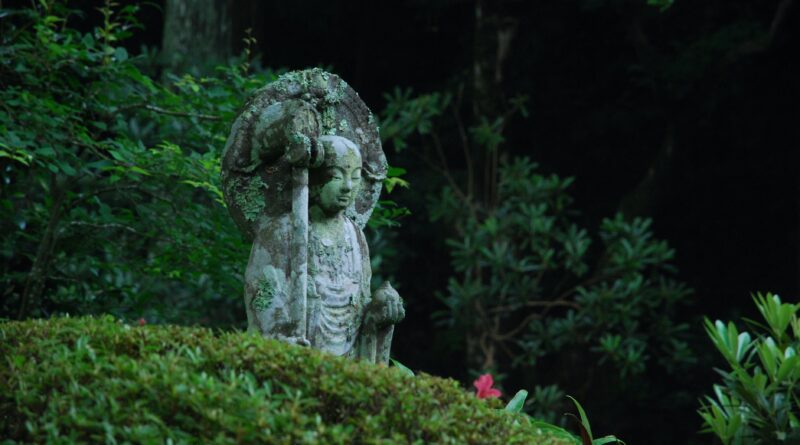Uchi Benkei no Soto Jizō (内弁慶の外地蔵 – A Lion at Home and a Mouse Abroad)
Uchi Benkei no Soto Jizō
内弁慶の外地蔵
In yesterday’s post, I introduced the term uchi Benkei (内弁慶), which means a person who is bossy inside the house but quiet outside.
昨日は、「家の中では威張り、外に出ると大人しくなる人」を意味する「内弁慶」という言葉を紹介しました。
If you want to emphasize the change in attitude between inside and outside one’s home, you can say uchi Benkei no soto jizō (内弁慶の外地蔵) by adding soto Jizō (外地蔵).
家の中と外での性格の変化をより強調するために、「外地蔵」を続けて「内弁慶の外地蔵」と言うこともあります。
Soto (外) means “outside.”
「外」は “outside” を意味します。
In addition, Jizō (地蔵) is an abbreviation for Jizō Bosatsu (地蔵菩薩), one of the most popular Buddhist bodhisattvas, and you can find their stone statues all over Japan.
また、「地蔵」は仏教における菩薩「地蔵菩薩」の略あり、地域を守る神仏として日本各地にその石像が見られます。
Since Jizō has a vast and compassionate mind, it can also be used as a synonym for a quiet or generous person.
広大な慈悲の心を持つお地蔵様は、「大人しい人」や「寛大な人」の代名詞としても使われます。
In other words, soto Jizō means a person who becomes quiet like Jizō.
すなわち「外地蔵」とは、家の外ではお地蔵様のように大人しくなる人、というわけです。
Note that this phrase contains an insulting nuance.
この表現は軽蔑的なニュアンスを含むことに注意してください。




